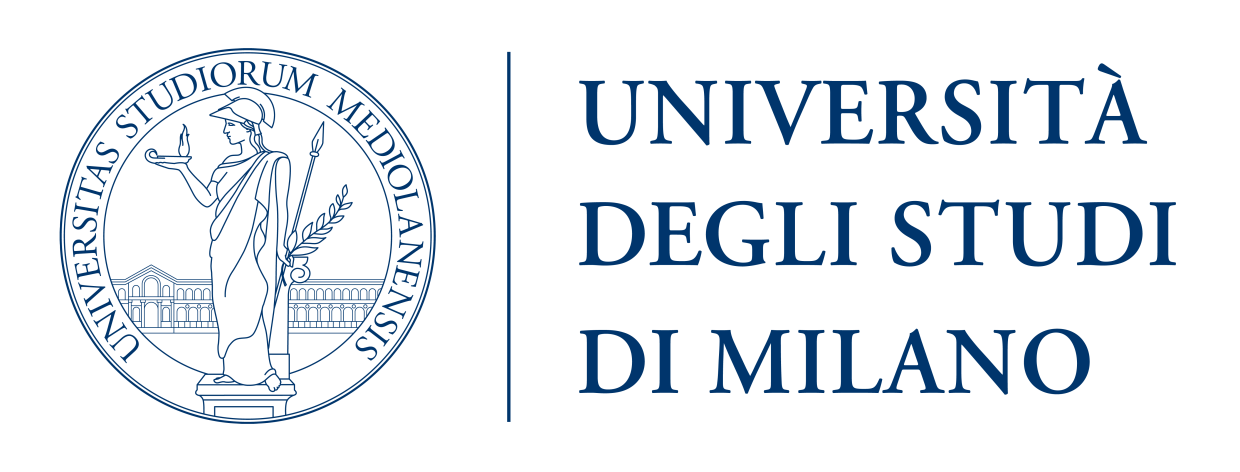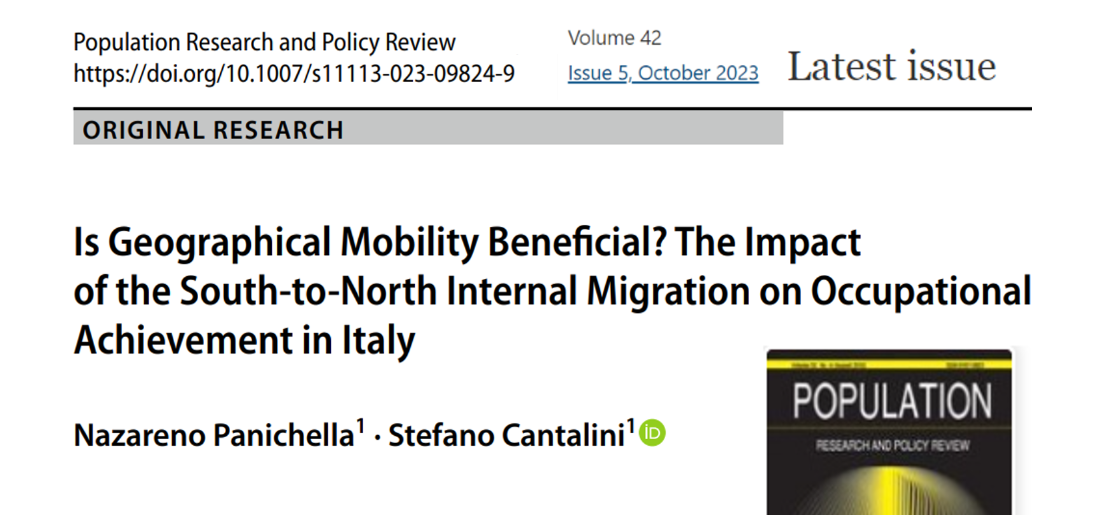UPDATING
Latest news
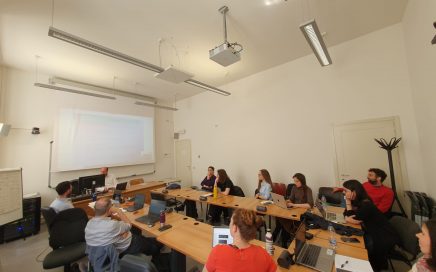
Last GESI SocioDemo Seminar of the Year
The last GESI Socio-demo seminar of this academic year, held today, was well-participated. It featured an interesting debate where Emmanuele Pavolini presented a work titled “Equalizing or not? Public childcare and women’s labour market participation”.
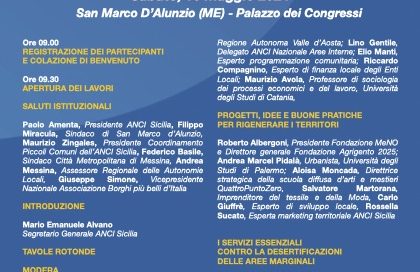
Conference: “I comuni siciliani oltre la crisi demografica ed economica”
An important event organized by ANCI is on the horizon: “I COMUNI SICILIANI OLTRE LA CRISI DEMOGRAFICA ED ECONOMICA” conference. Taking place on Saturday, May 18, 2024, at the Palazzo dei Congressi in San Marco D’Alunzio (ME), this gathering is set to be a pivotal moment for Sicily’s trajectory. This event will provide a platform […]
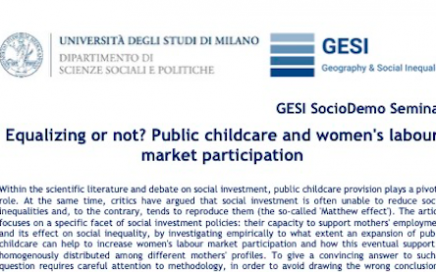
Next GESI SocioDemo Seminar
We are glad to invite you to the next GESI SocioDemo Seminar of 2024, on Tuesday, May 21st at 14:30 Equalizing or not? Public childcare and women’s labour market participation Speaker Emmanuele Pavolini (Università di Milano) Further details Tuesday, April 21st, 2024, 14:30-16:30 SPS Seminar Room (1st FLOOR, CONSERVATORIO SIDE – via Conservatorio 7, Milan) […]
About us
The GESI (Geography and Social Inequality in Italy) project investigates how the geographical area of origin affects different aspects of individuals’ life courses (educational and occupational opportunities, social mobility pathways, family dynamics and internal geographical mobility) and reverberates on social inequalities in life outcomes in Italy.

3D earth graphic symbolizing global trade, vector illustration.
UPDATING
Latest publications
GESI research just published
Abstract: Geographical mobility plays a crucial role in shaping demographic and social change, yet few studies have examined its impact on occupational success and the transmission of social inequality across generations. This study aims to investigate the effect of internal migration on occupational status in Italy, exploring whether men and women experience a benefit or disadvantage from South-to-North migration, and if this effect is influenced by family status and social class of origin. The research is based on the Italian Household Longitudinal Survey and utilizes a set of fixed effects linear regression panel models combined with Coarsened Exact Matching (CEM). Results show that only men benefit from migration, while women experience a disadvantage, which increases when they move after union formation and the transition to parenthood. Furthermore, the impact of geographical mobility on occupational status varies based on social class of origin only for men, with those from higher classes experiencing a much greater migration benefit than those from medium and lower classes. These findings demonstrate that geographical mobility serves as an additional source of advantage for individuals from higher social classes. The positive effect on male occupational success compounds with family-related benefits, further widening social disparities between individuals in different social strata.
Authors: Nazareno Panichella and Stefano Cantalini
Keywords: Internal migration · Occupation · Inequality
Full article available at https://link.springer.com/article/10.1007/s11113-023-09824-9
GESI’s Upcoming Publications
GESI is generating fresh evidence regarding the geographic differentiation of social inequalities and life opportunities in Italy.
Continue reading→
